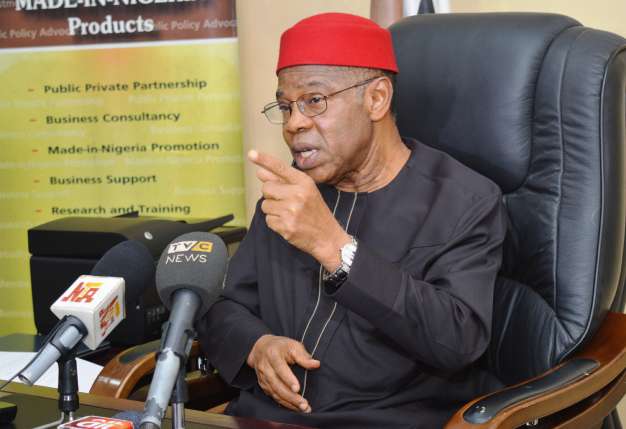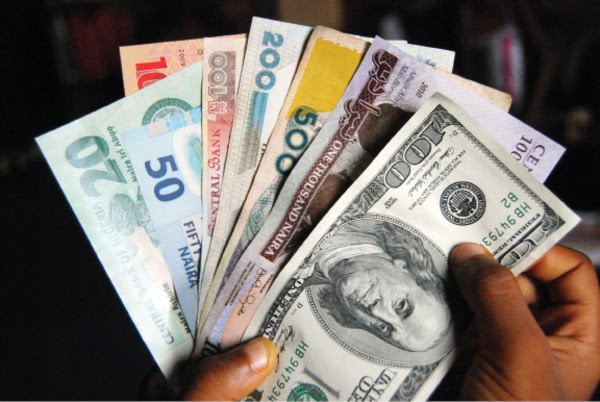Manufacturers under the aegis of Manufacturers Association of Nigeria, MAN, have accused commercial banks in the country of engaging in foreign exchange racketeering, which has been fuelled by acute shortage of hard currency in the economy.
The manufacturers also called for the immediate review of the forex policy of the Central Bank of Nigeria, which they described as a failure so far.
The CBN has been rationing forex to manufacturers and other prospective importers through commercial banks following the fall in the global price of crude oil, Nigeria’s biggest forex earner.
President, of the association, Dr. Frank Jacobs, said members of the association had on several occasions, complained about being on the wrong end of the racketeering involved in the allocation of forex, adding that affected persons are afraid to identify those responsible for the corrupt practice.
He said, “Our members have been reporting that there are some shady deals going on in foreign exchange market, so we have received a number of those reports but the unfortunate thing is that nobody wants to come out to say they are ready to identify the persons behind it.”
Jacobs, however, noted that the people behind the racketeering would continue to exploit the CBN’s forex policy that leaves a lot of difference between official forex rate and that of the parallel market, if the apex bank fails to immediately review its forex policy.
He said, “I like the recent call made by the National Executive Council on the CBN to look at the forex policy. The policy has not stabilised the naira as the naira has continued to fluctuate. So, we need to move away from that policy and try something else because it is not working.”
The Attorney General of the Federation and Minister of Justice, Mr. Abubakar Malami (SAN), had on Wednesday, said he had received petitions supported by documents, alleging corruption in the CBN’s forex allocation and transactions.
But the CBN had debunked the allegations in a publication posted on its website, saying it neither allocated foreign exchange nor did it deal directly with bank customers.
It insisted that its forex policy was transparent, adding that it was not responsible for fixing forex rates for transactions by individuals or companies.
Meanwhile, the alleged foreign exchange racketeering has been identified as one of the factors frustrating importers from having access to CBN’s intervention forex funds.
For instance, in November 2016, the CBN announced that it had given manufacturing industries access to foreign exchange valued at over $660m in the interbank market to source raw materials and spare parts for their industries courtesy of the interbank forex market.
But according to manufacturers, even though the CBN has been making forex available from time to time, it has largely been inadequate to cater for their needs.
Jacobs said, “I know about $400m and $500m (made available). What is on now is $2.8bn that the CBN is saying it gave to the real sector, including manufacturers and I’ve just received some documents related to it and still awaiting the rest of them.
“If the CBN gives manufacturers N1bn every month, I believe it will take care of most of their problems. In January, what the manufacturers got from the document they sent to me was about $500m and if that is brought up to N1bn, I am sure it will go a long way in addressing the forex challenges for manufacturers.”
Jacobs said what the forex manufacturers had been getting had only aided them to keep their businesses afloat.
Also, Chairman, MAN, Rivers State chapter, Charles Beke, said, “If you asked me if I was aware of the CBN policy to assist manufacturers to access forex, I would say yes. But it is one thing to have a policy and another thing to implement it.
“Manufacturers across the nation, not just in Rivers State, face forex crisis and it is having negative implications for our operations.”
In Akwa Ibom State, Chairman, MAN, Mr. Iniobong Jackson, said many factories had closed down in the state because of lack of access to forex to import raw materials.
He noted that inconsistency in government policies made it difficult for manufacturers to plan properly, describing the current period as bad for manufacturers.
“Many people have closed down their factories because access to forex has been almost impossible,” he added.
President, Ekiti State Chambers of Commerce, Industry, Mines and Agriculture, Chief Kola Akosile, also said the state manufacturers had not benefited from any forex intervention from the CBN.
The immediate past President, Kwara State Chamber of Commerce, Industry, Mines and Agriculture, Chief Hezekiah Adediji, said to the best of his knowledge, no member of the association had accessed forex from CBN’s intervention, including the $660m window in the interbank market as promised in November 2016.
He stated that the problem was because many of its members were not aware of the intervention funds.
Adediji said, “No manufacturer in the state has accessed the forex as far as I know. CBN does not make much publicity about some of its intervention funds. Many manufacturers are not aware of such development. They do not know where and how to access the money.”
“It is affecting us because we are not making progress, when you are handicapped; there is not much a business owner can do.”
The Chairman, MAN, Edo/Delta Branch, Dr. Unuigboje Alofoje, lamented that its members had had a difficult time accessing forex from banks in the region, stressing that Nigeria had been a country of buying and selling with the manufacturing sector almost totally neglected by the government.




